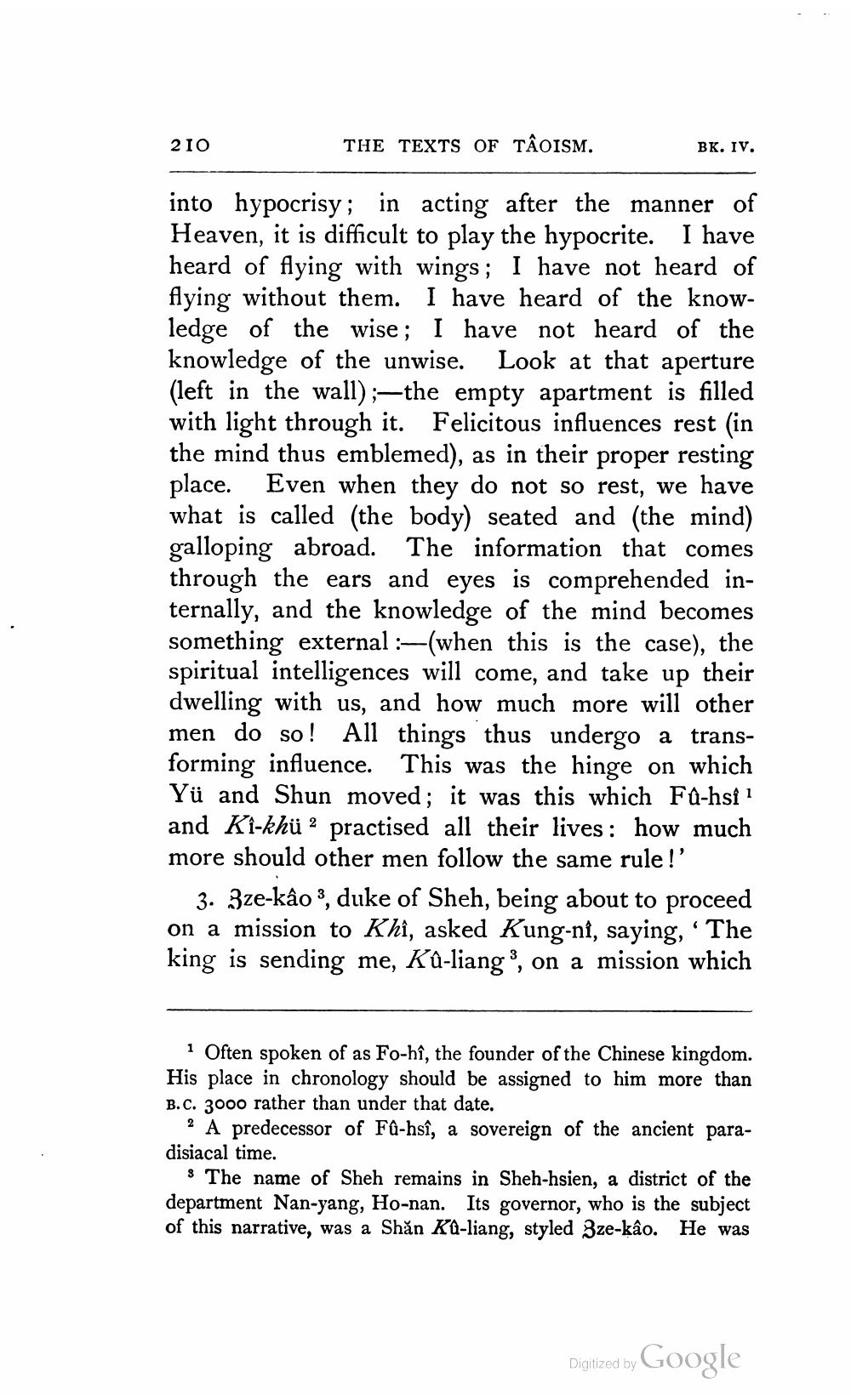________________
210
THE TEXTS OF TÂOISM.
BK. IV.
into hypocrisy; in acting after the manner of Heaven, it is difficult to play the hypocrite. I have heard of flying with wings; I have not heard of flying without them. I have heard of the knowledge of the wise; I have not heard of the knowledge of the unwise. Look at that aperture (left in the wall) ;—the empty apartment is filled with light through it. Felicitous influences rest (in the mind thus emblemed), as in their proper resting place. Even when they do not so rest, we have what is called (the body) seated and (the mind) galloping abroad. The information that comes through the ears and eyes is comprehended internally, and the knowledge of the mind becomes something external :-(when this is the case), the spiritual intelligences will come, and take up their dwelling with us, and how much more will other men do so! All things thus undergo a transforming influence. This was the hinge on which Yü and Shun moved; it was this which Fa-hsi 1 and Kî-khü 2 practised all their lives : how much more should other men follow the same rule!'
3. Zze-kâo , duke of Sheh, being about to proceed on a mission to Khî, asked Kung-ni, saying, “The king is sending me, Kû-liang ?, on a mission which
1 Often spoken of as Fo-hî, the founder of the Chinese kingdom. His place in chronology should be assigned to him more than B.C. 3000 rather than under that date.
? A predecessor of Fû-hsî, a sovereign of the ancient paradisiacal time.
3 The name of Sheh remains in Sheh-hsien, a district of the department Nan-yang, Ho-nan. Its governor, who is the subject of this narrative, was a Shăn Kd-liang, styled Zze-kâo. He was
Digitized by Google




